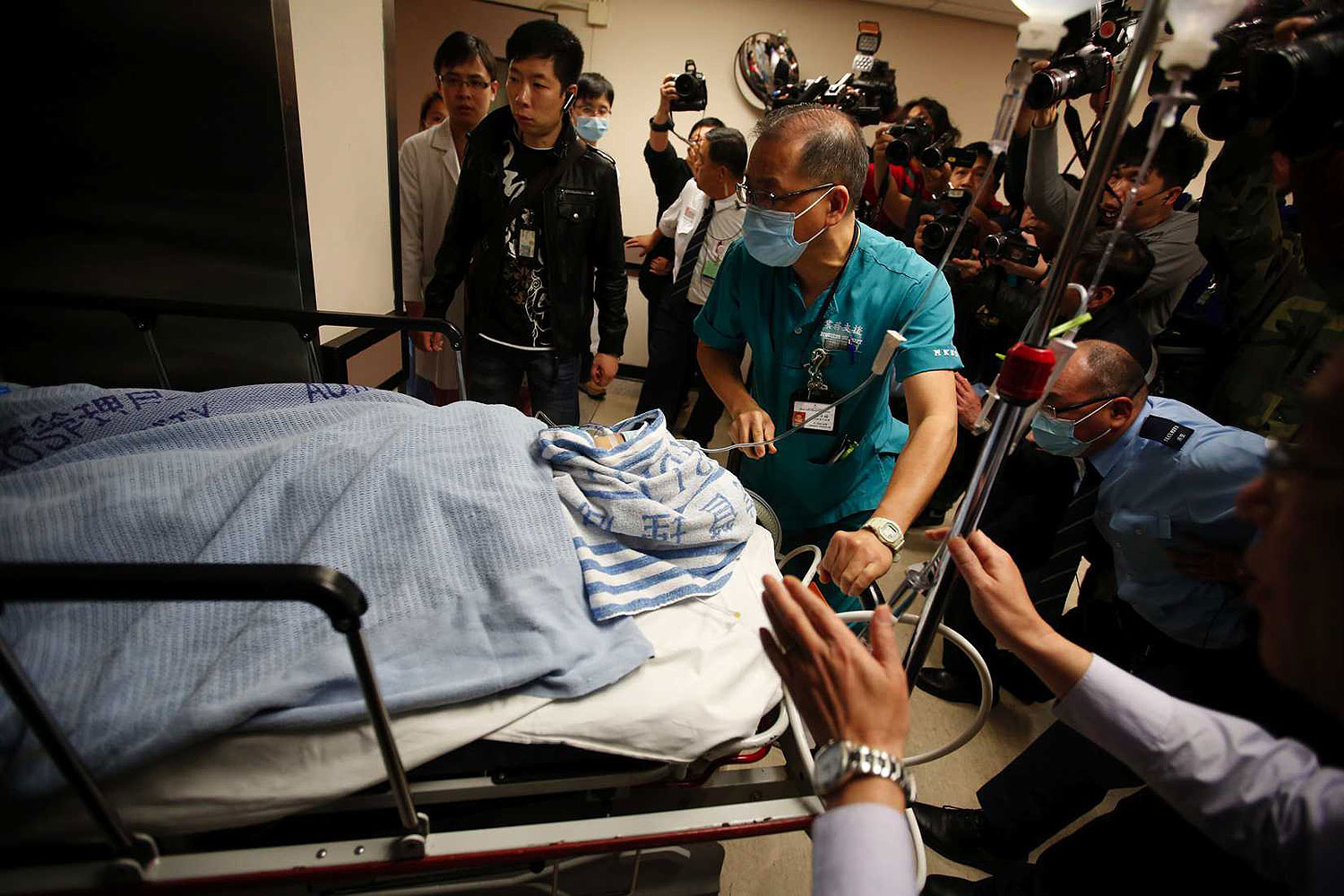
A man jumps off a motorbike, slashes his victim in the back and the legs with a meat cleaver before driving off, leaving the victim in the street. The gruesome attack on former newspaper editor Kevin Lau has not only left Hong Kong in shock, it also directs a fresh spotlight on the city’s underworld.
Triads, as the local organized crime gangs are known, have become invisible to the point of almost being forgotten. Murder rates have dwindled, even though infrequent inter-triad assaults still occur. Recent raids in Hong Kong, Macau and Guangdong province have resulted in over 1,800 arrests. Still, the loose networks of Sun Yee On, 14K, Wo Shing Wo and other less significant gangs are believed to have tens of thousands of members to this day, quietly running prostitution, gambling and drug rackets as well as more conventional businesses.
“The power of the triads is less obvious now than before the handover [of Hong Kong to China],” says Sharon Kwok, a sociologist focusing on triad research at City University of Hong Kong. “People don’t walk up to you and say that they’re a member of 14K and ask you for money. Many triads have gone into more legitimate businesses. The expected exodus of triads never happened, their networks just changed shape.”
This morphing into semi-respectability has been so successful that nowadays people are surprised when brazen triad activity takes place. Although triad involvement has not been confirmed, police sources have described the assault on Lau to South China Morning Post as a “classic triad hit” and said that every informant on their payroll is being tapped for information.
“We don’t know if it is triad-related,” says Lee King-wa, author of The Transformation of Triad ‘Dark Societies’ in Hong Kong. “But even if this would be triad-related, it could be perpetrated by a member that’s been hired individually.”
Sharon Kwok points out that syndicates have become more scattered in recent years, and that members operate individually to a greater extent. Partly, she says this has to do with effective undercover police work.
“The triads call the undercover police ‘ghosts’,” says Kwok. “They’ve created a big problem for them. The triads are so afraid that they have stopped arranging initiation ceremonies, since that can be used as evidence against them. The kids don’t know the history or the hand signs any more, and some even avoid associating with other members.”
Independent decision-making is thought to be behind the triads’ international networks. In January, it was reported that Sun Yee On and 14K had forged ties to Mexico’s Sinaloa cartel. In return for supplying the Mexicans with small arms and raw materials for methamphetamine production, the triads receive cocaine for the Chinese market and access to Sinaloa’s network to smuggle Asian nationals into the United States. But Kwok says that these connections often have to do with individual triad members going abroad and establishing connections, more than a top-down plan by triad leaders, or so-called “dragon heads.”
“Triad societies are not as organized as perceived,” she says. “Many of those who left [Hong Kong] because they were afraid of the Communist Party have created new connections in their host country.” In other words, triads have become that other typically Hong Kong phenomenon: an export.
More Must-Reads from TIME
- Cybersecurity Experts Are Sounding the Alarm on DOGE
- Meet the 2025 Women of the Year
- The Harsh Truth About Disability Inclusion
- Why Do More Young Adults Have Cancer?
- Colman Domingo Leads With Radical Love
- How to Get Better at Doing Things Alone
- Michelle Zauner Stares Down the Darkness
Contact us at letters@time.com